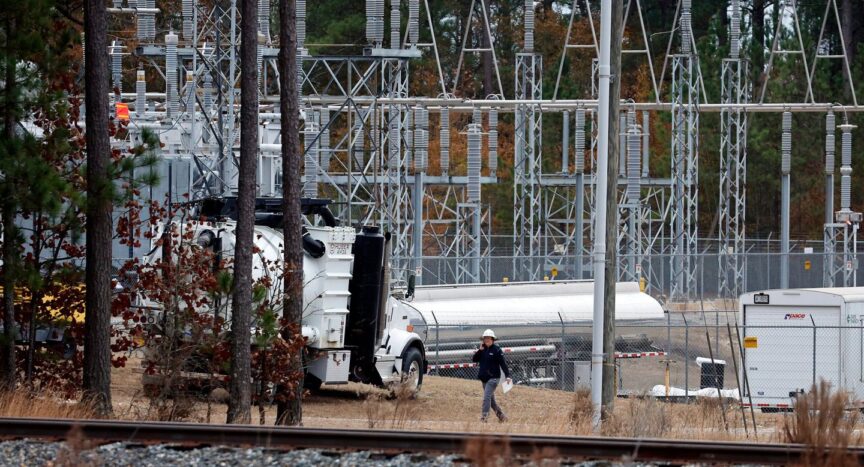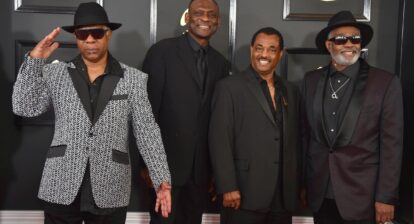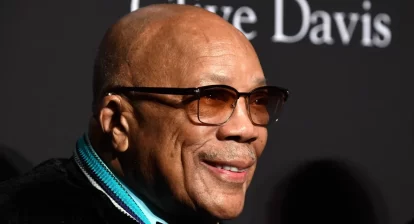The founder of a neo-Nazi group was convicted Monday of planning an attack to create chaos in the majority-Black city.
The founder of a Florida-based neo-Nazi group was convicted Monday of conspiring with his former girlfriend to plan an attack on Maryland’s power grid in furtherance of their shared racist beliefs.
Brandon Russell, 29, encouraged Sarah Beth Clendaniel to carry out a series of “sniper attacks” on electrical substations around Baltimore that could have caused significant damage to the regional power grid, according to federal prosecutors. Their goal was to create chaos in the majority-Black city, prosecutors say.
The two were arrested in February 2023 — before the plans were executed.
The 12-person jury deliberated for less than an hour after hearing about four days of testimony in federal court in Baltimore. They found Russell guilty of one count of conspiracy to damage an energy facility, the only charge he faced.
Russell will be sentenced at a later date. He appeared in court wearing a light blue jacket and glasses. He conferred regularly with his attorney throughout the trial, looking cheerful and engaged.
Several years ago, Russell co-founded the neo-Nazi group Atomwaffen Division, which is German for “atomic weapon.”
This wasn’t his first run-in with law enforcement. Russell previously pleaded guilty to possession of an unregistered destructive device and improper storage of explosive materials after investigators searched his home and found a stash of highly explosive materials and a cache of neo-Nazi signs, posters, books and flags.
During closing arguments Monday afternoon, prosecutor Joseph Baldwin recounted trial testimony, including from a confidential informant who got connected with Russell through the social media app Telegram. Russell introduced Clendaniel and the informant, hoping the person could help her obtain a firearm to use in the attack, according to prosecutors.
“He was the team leader taking care of his warrior,” Baldwin told the jury.
Prosecutors played a clip from a recorded phone call in which Russell used a racist expletive and requested secrecy from the informant, telling him: “It’s important you don’t talk about this to anyone.”
While prosecutors claimed Russell hoped to incite a race war, his defense attorney downplayed his involvement in the plot, calling the case “a setup from the very beginning.”
Russell was in Florida the entire time with no plans to travel to Maryland and actively assist in carrying out the attack, attorney Ian Goldstein said. Russell may have supported efforts to disrupt modern society and restore white supremacy, but he wasn’t a co-conspirator in this case, Goldstein said during his closing argument.
“He was a cheerleader — as terrible as that sounds,” Goldstein said, acknowledging his client’s “repulsive” ideology. “That’s what he was, and that’s not illegal.”
It wasn’t enough to convince the jury. Before jurors began deliberating Monday evening, U.S. District Judge James Bredar told them a guilty verdict would require a finding that Russell had “engaged, advised or assisted” in the conspiracy with knowledge of its objectives.
Russell apparently wasn’t on law enforcement’s radar until police responded to a 2017 double homicide at a Tampa apartment building and found him outside crying, dressed in military fatigues. One of his roommates had killed the other two, officials said.
Police concluded Russell had nothing to do with the deadly shootings. But while detectives investigated, they discovered the explosive materials and neo-Nazi paraphernalia in Russell’s possession, including flyers that said, “Don’t prepare for exams, prepare for a race war” and a framed photo of Oklahoma City bomber Timothy McVeigh.
Russell was in the Florida National Guard at the time and had attended the University of South Florida.
Devon Arthurs, who later pleaded guilty to killing his roommates, told detectives he shot them for teasing him about his recent conversion to Islam. He also said it was to thwart a terrorist attack by Atomwaffen and claimed Russell had materials in the house “to kill civilians and target locations like power lines, nuclear reactors, and synagogues,” prosecutors said.
Goldstein also represented Russell in that case, when the attorney argued that possessing explosives didn’t mean Russell intended to use them to cause harm. Goldstein said his client was traumatized by the deaths of his roommates and already suffered from mental health issues. Family members said Russell was just a follower looking for community and trying to please his friends.
Russell ultimately pleaded guilty to possession of an unregistered destructive device and improper storage of explosive materials. He was sentenced in 2018 to serve five years in prison. During the sentencing hearing, a federal judge in Tampa expressed explicit concern that Russell could fall in with the wrong crowd behind bars.
Several years later, federal investigators discovered his relationship with Clendaniel, who similarly had a long history of white supremacist beliefs.
She and Russell began exchanging letters around 2018 while they were incarcerated in different facilities. They developed a romantic relationship that continued after they were released from prison, court records show.
Clendaniel, 36, pleaded guilty to plotting the attack and was sentenced in September to 18 years in prison.
More must-reads:







